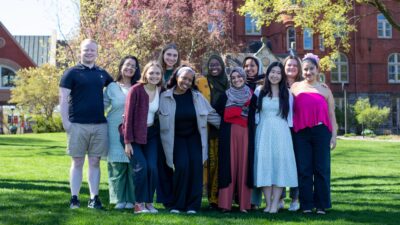
By Catherine Kane ’26
Macalester’s location in a major metropolitan area gives professors the opportunity to take their classes off-campus to explore and engage with the Twin Cities. We talked to four professors who incorporated off-campus learning into their curriculum for the fall semester.
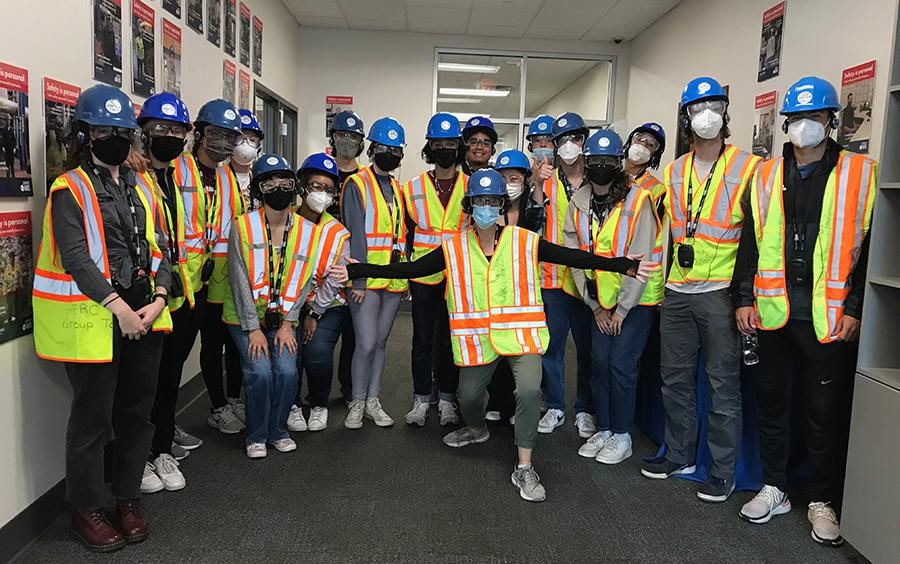
Psychology of Sustainable Behavior
Professor Christie Manning
What is the course’s goal?
The goal of Psychology of Sustainable Behavior is to introduce students to the psychological methods, research, and tools that pertain to sustainability, climate, and environmental justice. We move through different subdisciplines of psychology and analyze sustainability from several different psychological vantage points (e.g., behavioral, cognitive, social, health). We seek to understand what makes people act and how to move people toward sustainable and environmentally just behavior. In the first project of the course, students attempt to produce zero trash for 10 days. The point of the project is to pay attention to the opportunities, barriers, and social signals we get from the world. What conditions in the world around us make zero waste easy, difficult, rewarding, or punishing?
How has your course engaged with the Twin Cities?
Early in the semester, we visit the Hennepin Energy Recovery Center (HERC) garbage incinerator, an environmental justice disaster located on the north edge of Minneapolis in the zip code with the highest asthma rates in Minnesota. It’s in a majority BIPOC and low-income neighborhood where there are multiple polluting facilities. When we visited, a county employee gave us a presentation about the many efforts both HERC and Hennepin County have made to keep HERC’s toxic emissions below EPA requirements. In addition to visiting HERC, the class meets with environmental justice activists in North Minneapolis who are working to address the sources of pollution in their neighborhood. At the moment, the majority of Minneapolis trash is sent to HERC—a place that one could label a sacrifice zone. The trash we produce at Macalester is burned in a different incinerator, with different but equally concerning environmental justice implications. It is a startling experience for students to see firsthand what happens to our garbage and who is impacted by it. Most of us don’t think much about our trash after we throw it away.
What do you hope students will get out of this course?
I hope students gain a more visceral and tangible understanding of the environmental and climate justice issues that we are facing as a society. I want them to have a sense of agency and a set of psychological tools with which they can take action.
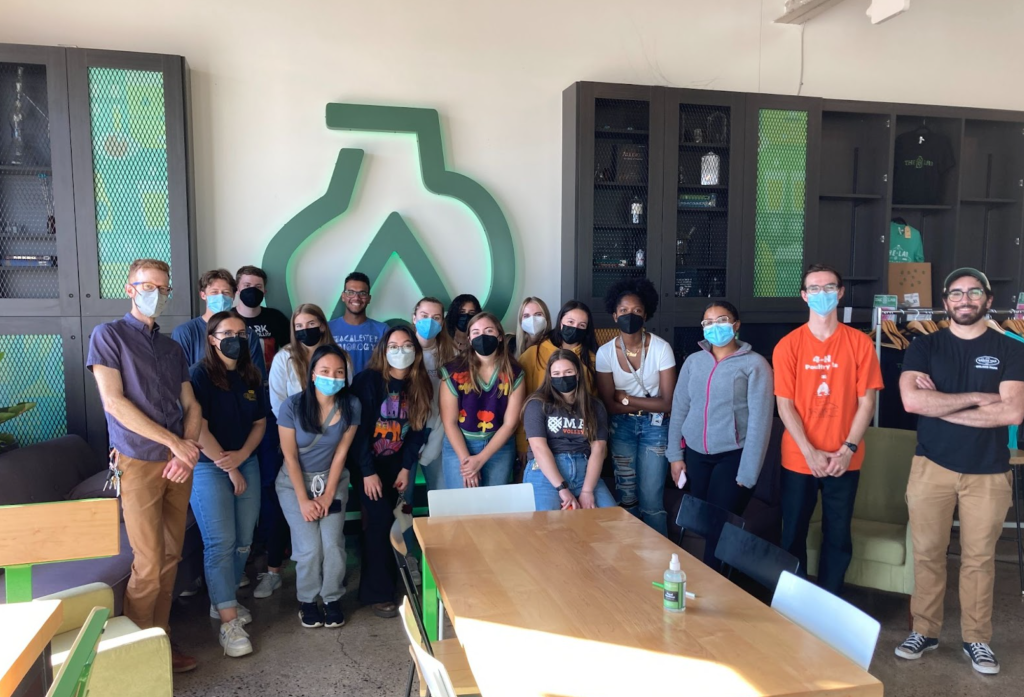
Microbiology
Professor Robin Shields-Cutler
What is the course’s goal?
After this class, students should have an appreciation for microbial diversity and microbes’ impacts in our world, and an understanding of how microbiology is interwoven through history and society. But even independent of microbiology, I want students to develop their abilities in thinking critically about new information, and effectively communicating about science. I also want it to be fun—though I get to cheat there: microbiology is inherently fascinating and cool!
How have you engaged with the Twin Cities?
This semester, we went to a place called The Lab. It’s a beverage consulting business that works with beverage makers, mostly breweries, to either pilot new beverages on a small scale or investigate issues that a brewery might have. I like taking trips somewhere in town that is very commercial—beverages are a multibillion-dollar industry. It is totally outside the realm of medicine, but the employees use skills that these students have already practiced and received at Macalester. This commercial industry uses the same techniques that we’ve been using in class and students can see the value of their skills really explicitly right there.
What do people get wrong about microbiology?
I think one common misconception is the idea that all bacteria and viruses are germs that we should be sanitizing against at every possible moment. One of my efforts in the class is to reveal a diverse world of microbes, the vast majority of which are not pathogenic. Microbes contribute in critical ways to our health, the stability of our planet and countless ecosystems, and even to global climate patterns.
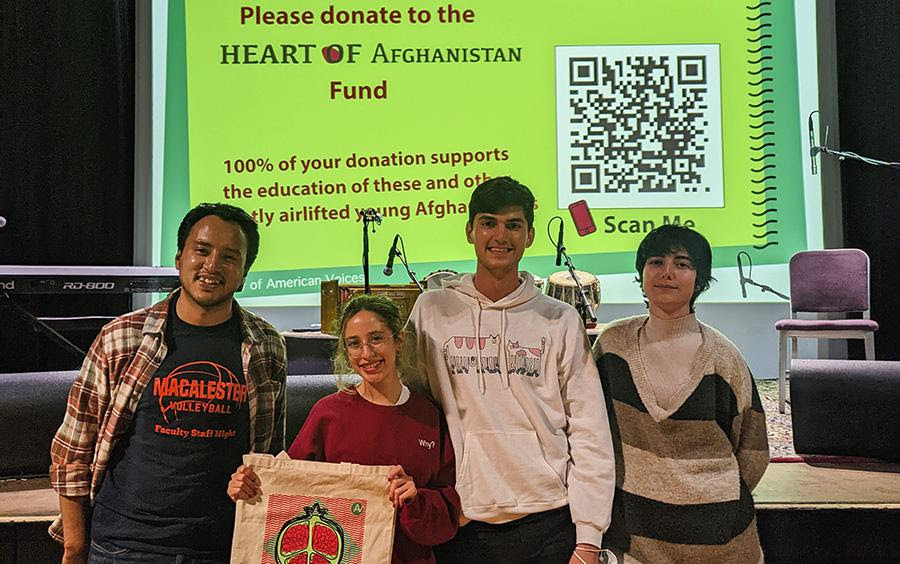
Political Geographies of South Asia
Professor Rupak Shrestha
What is the course’s goal?
The goal is to study everyday politics and lived experiences of various communities in South Asia. Rather than framing the course as a macro-scale understanding of politics in South Asia, we look at how different policies in our eight target countries are affecting people’s everyday lives. We’re really interested in understanding everyday lived experiences.
How have you engaged with the Twin Cities?
A few students and I attended a concert by the Heart of Afghanistan at the Cedar Cultural Center. It was great for us to go to that particular show and enjoy the music alongside to see local Afghans who have come to be resettled in the Twin Cities United States after the recent Taliban takeover. The Taliban is censoring forms of music production, scholarship, and performance in Afghanistan; but here, we and it was very special to have Afghan refugees playing that music among us in the Twin Cities area. It was a beautiful sight.
What misconceptions do people have about South Asia?
In many instances, when people think about South Asia, they picture remoteness. We need to disrupt the idea that remoteness means being stranded or cut off from the world. The places that we conceive of as remote have historically, and in contemporary times, been connected to the world through trade routes, or to connections to other spaces. They’ve always been interlinked in the global flow of peoples and things.
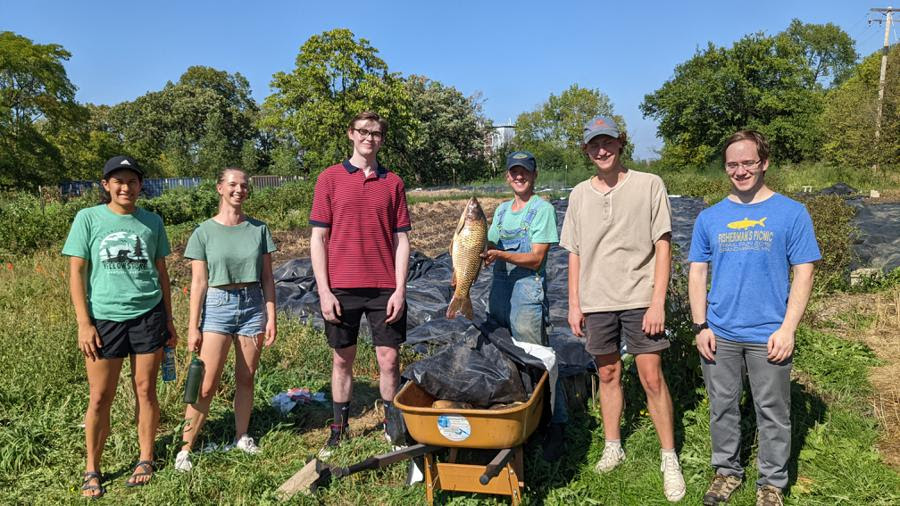
Energy and Sustainable Design
Professor James Doyle
What is the focus of this course?
We are studying the ways in which we can combat climate change using renewable energy sources. We also consider sustainable transportation, food, waste, water management, and building energy and construction practices. The emphasis is on deep electrification of our energy use, coupled with carbon-free and renewable electrical power production.
How have you engaged with the Twin Cities?
We had four field trips. We studied urban agriculture at the Frogtown Farm, toured the District Energy Combined Heating and Power facility in downtown St. Paul, and learned about recycling at the Eureka Recycling facility in Minneapolis. Our final trip was the Ramp A Community Solar Garden with a tour guided by Timothy Den Herder-Thomas ’09, co-founder and general manager of Cooperative Energy Futures, a Twin Cities solar garden developer.
What do people get wrong about sustainable design?
That the solutions are too expensive and/or too far in the future, and aggressive attempts to combat climate change will ruin the economy. In fact, the opposite is true. Renewable energy and sustainable design represent enormous opportunities for jobs and entrepreneurs, and the needed technological solutions are either already available or will become available in the near future.
December 19 2022
Back to top



